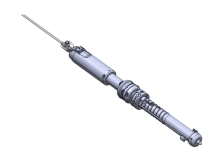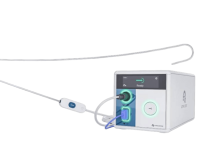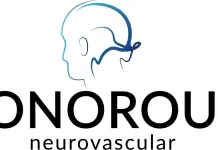The digital therapeutic for children’s ADHD symptoms received a De Novo clearance last summer.

Akili Interactive has published the full data from its STARS-ADHD Adjunctive trial. The data builds upon the company’s pivotal study of AKL-T01 (now available as EndeavorRx) and suggests the videogame-like digital therapeutic delivers benefits with or without accompanying stimulant medication, and that they persist up to one month following the treatment.
“These results increase the generalizability of previous studies and provide further evidence that AKL-T01 is a viable option for improving attention functioning in children with ADHD, including children receiving concurrent pharmacotherapy,” researchers wrote in npj Digital Medicine.
The study was funded by Akili, and conducted by employees and other researchers with ties to the company.
EndeavorRx is a software treatment for improving symptoms associated with ADHD in children, in which patients navigate an avatar through a course while responding to on-screen prompts. It is intended for use as one component of a broader therapeutic program, as per the product’s De Novo clearance from last year.
TOPLINE DATA
Of the study’s 206 participants, 95% completed the study through the initial four-week treatment period, 90% through a subsequent four-week pause and 87% through an additional four weeks of treatment after the break. Just shy of 80% of participants played through half of the recommended “missions” during the initial four-week treatment period (down from 85.6% in the company’s pivotal trial).
As outlined in an early data reveal in January 2020, study participants who received the digital therapeutic demonstrated ADHD Impairment Rating Scale improvements four weeks after baseline (p < .001), as well as increases among secondary clinical measures such as the ADHD Rating Scale and the Clinical Global Impression – Improvement Scale. The researchers observed these outcomes both among those who received the digital therapeutic with stimulant medication (n = 130) or without (n = 76).
This primary measure and secondary outcomes held steady over the four-week break (p <.001), with treatment effects increasing from baseline to the end of the second treatment period in both cohorts. Responder analyses generally supported these trends.
The researchers reported no serious adverse events among the participants, and device-related adverse events among 18% of the children. The majority of parents and children perceived an improvement in participants’ ability to pay attention following the trial.
“The findings from this latest study offer additional information about the effectiveness of EndeavorRx in children treated with front-line pharmacotherapy for ADHD,” Scott Kollins, professor of psychiatry and director of the ADHD Program at the Duke University School of Medicine, faculty member at the Duke Clinical Research Institute and the study’s lead author, said in a statement provided by Akili. “As a clinician who works with children with ADHD, I am happy to see these results from an innovative treatment that can improve both symptoms and impairments in children with ADHD.”
HOW IT WAS DONE
The open-label, multisite trial recruited children aged eight to 14 years with an ADHD diagnosis but no other significant comorbid psychiatric diagnoses. These participants were required to either not be receiving stimulant treatment for their ADHD or to be adherent to the stimulant medication for at least 30 days prior to baseline.
Children received the digital treatment for use at home over four weeks, followed by a four-week break and then an additional four weeks of use. The children were instructed to use the treatment five days per week during treatment, with a daily session comprising of five missions that would take roughly four or five minutes to complete.
THE BACKGROUND
The adjunct trial follows last year’s full publication of the STARS-ADHD pivotal trial of Akili’s product in February 2020. This study compared the treatment to a prescribed sham app, and outlined significant improvements in primary pediatric attention disorder symptoms such as the Test of Variables of Attention Attention Performance Index (TOVA API) – although the case was a bit muddier when looking at some of the secondary measures highlighted in the adjunct trial.
Data from both trials were included as part of the company’s FDA submission. Shortly after the digital therapeutic was allowed to launch early due to the COVID-19 public health emergency, EndeavorRx received its De Novo clearance in June last year.
IN CONCLUSION
“The new digital therapeutic described in this paper is not intended to replace existing and efficacious approaches for managing ADHD,” Kollins wrote in a viewpoint article accompanying the data in npj Digital Medicine. “However, for the first time in decades, a completely novel, efficacious and safe modality of treatment is available as an option for patients, and has passed the scrutiny of regulators to ensure a favorable benefit:risk ratio.
“As is often the case with the introduction of innovative solutions to old problems, there will be skepticism, including misinformed and mischaracterized criticism of the innovation itself or the studies that support its use. But at the end of the day, having more empirically-supported treatment options is an important step for the field; and hopefully one that can represent a sea change to usher in a new era of new tools to manage ADHD and many other conditions,” he wrote.




